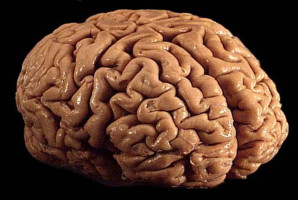
Glioblastoma is the most lethal and malignant adult brain cancer that may arise from neuroglial stem or progenitor cells.
Certain gene mutations or those with a known history of other cancers and radiation therapy may predispose patients to develop brain cancer.
Tumour relapse is invariably inevitable due to the resistance of glioblastoma towards standard therapies. Additionally, the infiltrative nature of these tumour cells means it is often not possible to surgically remove them completely.
Researchers from NUS Yong Loo Lin School of Medicine have discovered that the FDA-approved anti-fungal drug, sulconazole, exhibits anti-cancer properties towards glioblastoma cells.
This was published in the latest issue of Science Advances.
An in-depth investigation of this compound revealed that it competes with biotin (Vitamin H), an important co-factor for metabolic enzymes and modifier of histones, allowing it to inhibit the normal function of biotin-dependent metabolic enzymes and specific histone modification-associated gene expression.
This compromises glioblastoma metabolism and epigenetics, thereby impairing the tumour growth and invasiveness of glioblastoma cells.
In mammalian cells, holocarboxylase synthetase, or HLCS, is the enzyme that serves to distribute biotin to the biotin-dependent proteins. Gene silencing of HLCS mitigates the glioblastoma’s tumorigenicity – its tendency to develop tumours – in mouse models.
High HLCS expression is also associated with glioblastoma and inferior glioma patient outcome.
While HLCS is present in healthy patients, its expression increases in the tumours of glioblastoma patients.
Glioblastoma cells with higher HLCS expression will be able to better supply biotin to the biotin-dependent metabolic enzymes and histones, which results in a more proliferative and invasive glioblastoma.
Thus, the dependency of glioblastoma on biotin distribution suggests that the rational co-targeting of biotin-dependent metabolism and epigenetic pathways may be explored for glioblastoma eradication.
“Since biotin is found in various food sources, including legumes, egg yolk and offal, and commonly consumed as a supplement, these findings raise an important consideration of regulating biotin consumption in glioblastoma patients.
This discovery would also lay the foundation for the development of drug combinations from existing or new small molecule inhibitors against some of the biotin-dependent metabolic enzymes and histone modifications to cripple glioblastoma; some of these are already being actively explored in cancer treatment,” said Assistant Professor Derrick Ong from the Department of Physiology and Principal Investigator of this study.
Source: National University of Singapore, Yong Loo Lin School of Medicine
The World Cancer Declaration recognises that to make major reductions in premature deaths, innovative education and training opportunities for healthcare workers in all disciplines of cancer control need to improve significantly.
ecancer plays a critical part in improving access to education for medical professionals.
Every day we help doctors, nurses, patients and their advocates to further their knowledge and improve the quality of care. Please make a donation to support our ongoing work.
Thank you for your support.